Business households at Ben Thanh market, District 1, Ho Chi Minh City - Photo: QUANG DINH
Instead, use electronic invoices generated from cash registers connected to electronic data transfer with tax authorities.
It is necessary to end lump-sum tax on business households with revenue of over 1 billion VND/year, bringing practical benefits and promoting the development of business households and individuals.
We have at least 3.6 million business households with tax codes but only contribute 4.5% of total value added tax (VAT) and personal income tax in 2024, which is unfair to more than 900,000 honest businesses that are paying taxes.
Therefore, Resolution 68 of the Politburo on private economic development has advocated ending the lump-sum tax form for business households; switching business households to a tax declaration regime based on actual revenue, with input and output to determine accurately, correctly and sufficiently.
The second, more important thing is that through tax progress and accompanying conditions, we promote formalization, making the activities of households and individual businesses more transparent and equal with other economic sectors.
Furthermore, if the input and output of business households and individuals are not transparent through tax declaration, phenomena related to counterfeit, fake and smuggled goods will be difficult to prevent when most of these goods mainly appear in the business household area.
It can be seen that with the "arrow" of shifting from lump-sum tax to tax declaration based on actual revenue, we achieve many different goals.
That is to increase the responsibility of contributing to the state budget, create equality among economic sectors and more importantly, help business households to be transparent and accountable in production and business activities.
However, the shift from a lump-sum tax mechanism to a tax based on actual revenue for households and individuals doing business will create additional costs such as equipment investment, software, and the purchase of electronic signatures.
Not to mention that such a conversion requires business households to keep accounting books according to regulations, although it may be less than the requirements of a business, it is still complicated compared to the scale of households applying the lump-sum tax form.
This context requires state agencies, including tax authorities as well as local authorities, to be flexible in implementation.
At the same time, there should be a six-month to one-year training period to help businesses get used to the rules, avoid imposition and especially avoid using overly rigid penalties.
Of course, if households and individuals want to become businesses, they need to have enough support from the State. Accordingly, everything must be simple, tax declaration software and electronic invoice printing must be easy to implement.
In particular, procedures, accounting books, and management methods must be appropriate to the capacity, qualifications, and skills of each different business group. This will reduce compliance costs below the benefits they can achieve.
Thus, the number of households and individuals doing business moving from the gray area to the bright area will increase day by day, and we can expect to have the business force as the target set out in Resolution 68.
Back to topic
DR. NGUYEN QUOC VIET (UNIVERSITY OF ECONOMICS, VNU-HANOI) - BAO NGOC
Source: https://tuoitre.vn/chinh-sach-thue-cong-bang-thuc-day-ho-kinh-doanh-phat-trien-20250605084333499.htm






























![[Photo] President Luong Cuong works with Hung Yen and Thai Binh Provincial Party Committees on implementing Resolution of the 11th Central Conference, 13th tenure](https://vphoto.vietnam.vn/thumb/1200x675/vietnam/resource/IMAGE/2025/6/6/127b735d2761484d81dcee0d7725a25b)


![[Photo] General Secretary To Lam receives Korean Ambassador to Vietnam](https://vphoto.vietnam.vn/thumb/1200x675/vietnam/resource/IMAGE/2025/6/6/a0765b7543784cbcbfe4755b67d43ab4)



























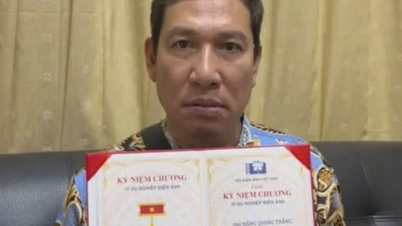





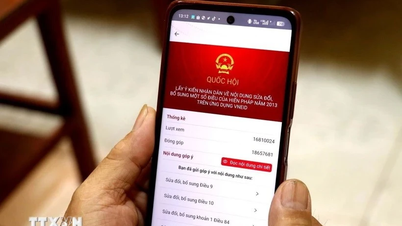

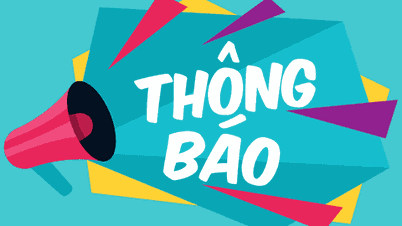






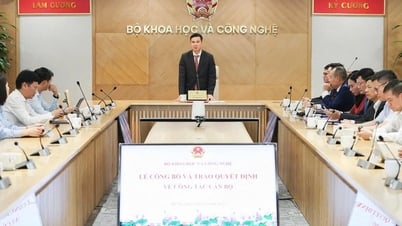





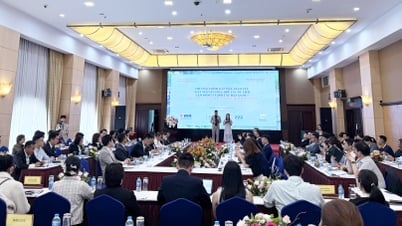










![[OCOP REVIEW] Tu Duyen Syrup - The essence of herbs from the mountains and forests of Nhu Thanh](https://vphoto.vietnam.vn/thumb/402x226/vietnam/resource/IMAGE/2025/6/5/58ca32fce4ec44039e444fbfae7e75ec)











Comment (0)